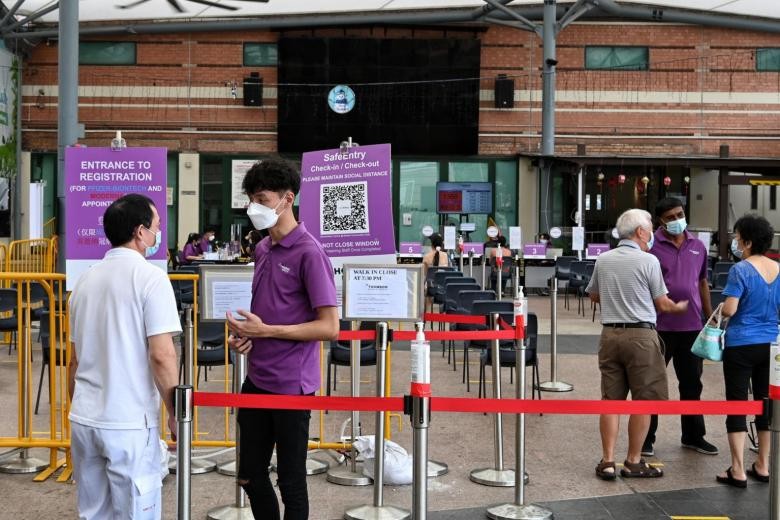How to calculate vaccination validity? Answers to questions on Covid-19 booster jab and more


SINGAPORE - Since the announcement on the expiry date of one's "fully vaccinated" status, Health Minister Ong Ye Kung on Friday (Jan 7) tackled some common questions and detailed specific scenarios with examples.
Because protection will wane over time. This can be restored with a booster dose, which is recommended five months after getting the mRNA vaccines and three months after dose three of the Sinovac or Sinopharm vaccine.
We will allow individuals up to 270 days to get a booster. The policy will take effect from Feb 14.
Here is an example:
Say you got your dose two of mRNA vaccine on June 1, 2021.
- Around 150 days or five months later, Nov 1, 2021: Eligible for a booster dose;
- 270 days or about nine months later, Feb 26, 2022: Get boosted by this date to be considered fully vaccinated;
- Day 271, Feb 27, 2022: Fully vaccinated status will lapse if booster is not taken.
If you have recovered well from an infection, without complications, your immune system would have gone through a strong stimulus. Think of it as a fairly powerful vaccination shot.
There can be various combinations of infection with vaccination doses.
You may be infected after you have completed two doses, before you started vaccination, or in between the two doses.
Say an mRNA vaccine dose is V and infection is I, the three combinations are:
- V+V+I: You got three stimulants, and you are considered boosted.
- I+V+V : You got three stimulants and are considered boosted.
- V+I+V: You are fully vaccinated but not boosted. This is because the timing between two doses is three to four weeks, and to get infected in between means the first V and the I are too close in timing together, and they are not separate stimulants to your body. You need V+I+V+V to be considered boosted.
Rule of thumb: If you are infected while unvaccinated or partially vaccinated, you need two more doses to be considered boosted.
[embed]https://www.facebook.com/ongyekung[/embed]
But there is no rush to get boosted if you have I+V or V+I+V. Our experts tell us that under these scenarios, the immunity takes longer to wane, beyond nine months.
So you will get the green light for booster VDS (vaccination-differentiated safe management measures) until our experts advise that it is time to (get a) boost. But if you want the extra protection, it is safe to get the boost, and our vaccination centres will allow you to do so.
Israel is the only country so far to administer a fourth dose to people who are not immunocompromised.
It is too early to answer that question. If we look at an endemic disease such as influenza, people take annual vaccines to protect themselves. This is because the influenza virus keeps mutating so a new vaccine dose is necessary every year.
So whether we need future Covid-19 vaccine doses depends on how fast the protection from three doses wanes and whether the virus keeps mutating.
This article was first published in The Straits Times. Permission required for reproduction.